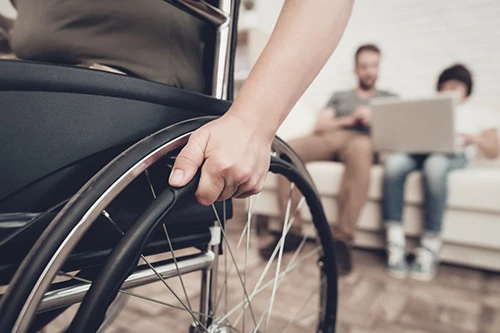A head injury can sneak up on you at any time, anywhere. You may be cycling safely in the bike lane when a car suddenly swerves onto your path and hits you. You may be skiing at a resort before quickly losing control and hitting a tree.
Whatever the case may be, a head or brain injury, even a mild traumatic brain injury, should be taken seriously. Do not immediately assume you’re okay after an accident, even if you feel normal. Chances are you have either a concussion or another type of brain injury.
What is Brain Injury?
Simply put, brain injury is damage to your brain, which can cause a variety of effects ranging from constant dizziness to behavioral changes and death. A concussion, a mild traumatic brain injury (TBI) caused by the brain being jostled inside the skull, is the most common type of brain injury. A head injury doesn’t even necessarily cause the concussion.
What may occur after a concussion or brain injury includes:
- Post-traumatic amnesia
- Short/Long term memory loss
- Brain function issues
- Vomiting
- Nervous system damage
- Dizziness
CDC statistics reveal that, in 2013, there were a total of ~2.8 million TBI-related emergency room visits, hospitalizations, and deaths in the US.
What Type of Brain Injury?
According to Brainline, there are a few types of TBI:
- Concussion – mild traumatic brain injury, which usually doesn’t cause permanent damage to the brain.
- Contusion – a bruise to a certain area in the brain caused by a head injury.
- Diffuse axonal injury (DAI) – essentially, the stretching of nerve cells, when the brain is quickly jostled. This can cause major changes to the brain function (including personality changes).
- Hematoma – a blood clot resulting from ruptured blood vessels. A blood clot that damages brain tissue is known as an intracerebral hematoma.
- Traumatic Subarachnoid Hemorrhage (tSAH) – a subtype of hematoma, with bleeding into the area around the brain and over the surface of the brain.
What To Do After a Brain Injury
- Cease all current activity – Stop what you’re doing if a head injury occurs. Most of the time, you’ll need to immediately rest unless the brain injury is severe.
- Get help – If anyone is near you, shout for help. Someone is then likely to rush over, contact an ambulance, and monitor your condition. If no one is around to aid you, call nearby family members and friends.
- Seek a medical professional – If you are experiencing mild symptoms of a head injury, you should immediately schedule an appointment with your primary care physician. If you are showing severe symptoms, your caregiver should contact transportation immediately. Severe symptoms include confusion, vision impairment, dizziness, drowsiness, headaches, and vomiting. The earlier you seek medical treatment, the less likely you are to suffer from long-term damage. Treatments may include medication, therapy, and even surgery.
- Follow up – Following up is very important. If your symptoms do not improve after a week, contact your physician or get a second opinion.
- Listen to your doctor – Listening to your doctor is essential to the recovery process. Traumatic brain injury should be taken seriously, so it’s best not to resume typical activities (for instance, return to work). The doctor will lay out a plan to treat your injury and walk you through the traumatic brain injury recovery stages. They will also make a traumatic brain recovery prediction.
According to Traumatic Brain Injury, traumatic brain injury recovery time is dependent on the individual and the type of injury. For instance, the frontal lobe brain injury recovery time could take years, and sometimes you may never recover. Even the brain swelling recovery time varies, lasting at least a few days. However, the time it typically takes to make a full recovery from a TBI is between six months to two years.
If you’re worried about your chances of recovering from brain damage, then you should know that most people make a good recovery. However, 15 percent of people will continue to suffer from symptoms a year after the injury. Ultimately, you’ll likely be able to share your brain injury recovery stories with others.

